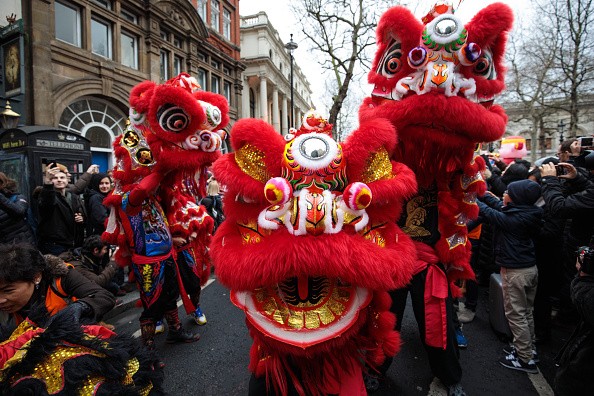A huge crowd of Estonians was entertained with a great Chinese cultural event last Sunday in celebration of the Lunar New Year. According to an Estonian government official, these cultural exchanges strengthens the relationship between the two countries.
The event was staged at the Freedom (Vabaduse) Square by the Estonian Sports and Traditional Wushu Federation. The program included dragon and lion dancing, Wushu, acrobatics and Chinese traditional music.
"Estonians are interested in the Chinese culture, and the cultural exchange is beneficial to promote closer cooperation in various sectors including business and information," said Taavi Aas, acting mayor of Tallinn City.
Two traditional Chinese orchestras presented professional performances that featured styles from two Chinese regions: Shaanxi Province, which tells about the start of the ancient Silk Road in the northwest of China; and the Fuchun Mountain, known for its beautiful landscape located in Zhejiang Province in the south of China.
Meanwhile, Chinese ambassador to Estonia Qu Zhe praised the contribution of the Happy Chinese New Year cultural tour to the cultural exchange between the two countries, for eight years and counting.
The government official also noted that it has also diversified the Estonian people's entertainment, deepens the friendship and understanding of the two peoples.
Chinese Dreams in Estonia
And it seems that this cultural exchange has greatly benefited the youth of Estonia.
Young people like 15-year-old Edith Merila and 20-year-old Carl Patrick want to visit China someday.
Edith is very interested in Chinese culture, especially the dragon dance which she performed with boys at the recent Chinese New Year party. Meanwhile, Carl can speak a certain amount of Chinese after learning it at the Confucius Institute.
"The attractiveness of Chinese culture is increasing among Estonians, and the number of people who are learning Chinese is rising," said Katjia Koort, executive director of the Confucius Institute of Tallinn University.
These cultural exchanges strengthen the relationship between the two countries, not only in the short term but also for the future generations.



























